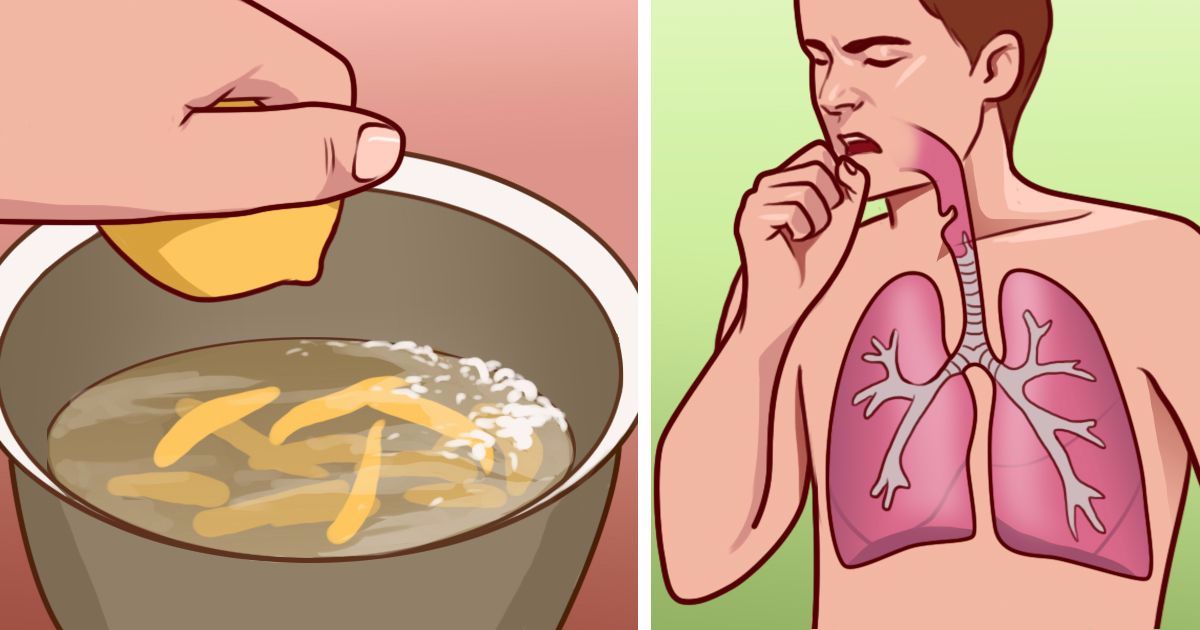Table of Content
Cough can affect more than 46% of adults with covid-19 and is less common in children. However, if you develop an underlying lung condition, you may cough mucus or phlegm. That said, a cough isn’t necessarily something you should just shrug off. Now, some people may develop a cough after becoming infected with COVID-19.

Mix together a cup of water with 1/2 to 3/4 teaspoon of salt. Warm water works best, because it dissolves the salt more quickly. It’s also a good idea to use filtered or bottled water that doesn’t contain irritating chlorine. If you’re taking any prescription medications, ask your doctor before adding any new ingredients to your diet. These attack bacteria, but they're no help against cold viruses.
Ways Travel Is Good for Mental Health
Essential oils work as great home remedies for cough because many of them contain antibacterial and antiviral compounds. Plus, some oils can help to loosen your mucus, relax the muscles of your respiratory system and allow more oxygen to reach your lungs. Some of the best essential oils for cough are eucalyptus, peppermint and lemon.

That’s because you’re better able to fight off conditions that cause excess mucus when you’re at a warmer body temperature. Over-the-counter cold and cough medications in young children. OTC cold and cough medications may cause serious and even life-threatening side effects in children. Talk with your child's doctor before giving any medications. A cough can be caused by a number of issues, including viral infections, bacterial infections, allergies and side effects of certain medications. Lemon essential oil is great for promoting detoxification, helping to cleanse your body of the toxins that are making you cough.
How to Get Rid of a Vaginal Yeast Infection
Dextromethorphan is an OTC medication that's often used for treating a dry cough. It’s common for people, at some point in their lives, to try the typical remedies from grandma’s medicine cabinet made with natural ingredients. Although the efficacy of many of them is only anecdotal, others do have some scientific backing. Of course, most of the time their effectiveness ranges from mild to moderate. Since not all cough medicines are the same, choosing the best treatment for you depends on your type of cough and symptoms. Verywell Family uses only high-quality sources, including peer-reviewed studies, to support the facts within our articles.

Note that since children under 6 years old aren’t especially good at gargling, it’s best to try other remedies for this age group. Children or adults who take blood thinners shouldn’t take bromelain supplements. Also, if you’re taking antibiotics, such as amoxicillin, avoid using bromelain, as it can increase the absorption of the antibiotic.
What is a wet cough?
“Staying well hydrated can help thin mucus in the back of the throat, which can lead to mild improvement in a cough,” explains Dr. Hanak. “Ginger has been found to be helpful in reducing cough and alleviating sore throat, and ginger lozenges are widely used for this purpose,” Dr. Hanak explains. To make one at home, mix half a teaspoon of table salt with eight ounces of warm water.

Masala chai contains several antioxidant ingredients, including cloves and cardamom. You can also use peppermint essential oil as an aromatherapy treatment. Spiced tea is a great way to get rid of a bad cough. In his book, Vasant Lad suggests a brilliant remedy for kids.
To do this, squeeze the bulb, gently place the syringe tip in the nostril about 1/4 to 1/2 inch , and slowly release the bulb. Saline nasal sprays may be used in older children. You can also try ice chips, sore throat sprays, lozenges or hard candy.
There isn’t much a doctor can do for viral infections but recommend tips for alleviating the symptoms. It’s best to stop a cough by treating the underlying cause, whether it’s a cold, allergies, acid reflux, or blood pressure drugs or other medications. But you also can try some home remedies to quiet and soothe your cough.
A few cups of ginger tea per day may help soothe inflammation in your throat while keeping you hydrated. It flushes out cough-inducing mucus and allergens from your nasal passages and sinuses. With your head tilted over a sink, use a neti pot, nasal cup, or bulb syringe to pour salt water in one nostril and let it drain out of the other. It soothes the scratchiness in the back of your throat. One study found that honey works just as well as over-the-counter drugs for calming nighttime coughs. Take a tablespoon as needed, or stir it into a warm drink.
Next, your muscles in your chest cage, diaphragm and abdomen begin to contract as they try to move air from the lungs to the nose. Coughing is a common reaction to the respiratory system trying to expel harmful microbes, dust or irritants from the body. It’s a natural reflex that protects your lungs, but as you know, it can be extremely irritating, obnoxious and even painful. Coughing can also keep you up at night and impact your quality of life until it finally goes away. A person may also find some relief with over-the-counter medications, such as those containing dextromethorphan or cough drops. NAC is a supplement that comes from the amino acid L-cysteine.
Time and again ginger has come to our rescue as one of the best home remedies for cold and cough. As Ginger has strong anti-inflammatory properties (eg – shoagol & gingerol), it can effectively soothe the inflamed membranes in the throat. Moreover, it can also get rid of irritating mucus build-up in the respiratory tract area. Honey appeals to children because it is naturally sweet, and it can help fight infection due to its bacterial suppressing properties. “Honey has been found to be helpful in alleviating cough, either on its own or as part of a cup of tea,” says Dr. Hanak.
Contact your doctor if your dry cough persists for longer than 2 months, gets worse with time, or is accompanied by other concerning symptoms. Rarely, a persistent dry cough may be the result of a more serious condition, such as pulmonary fibrosis or lung cancer. This is a type of chronic acid reflux that can cause damage to the esophagus. Irritation in the esophagus can trigger the cough reflex.

No comments:
Post a Comment